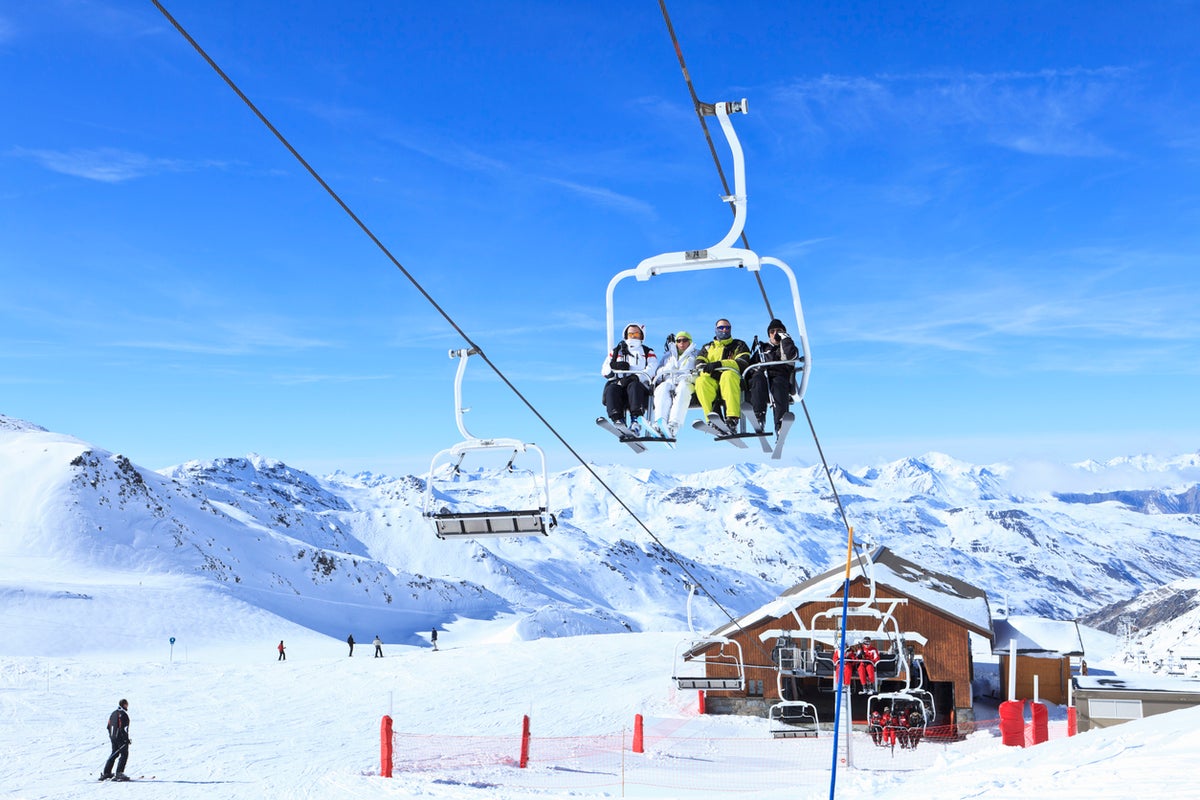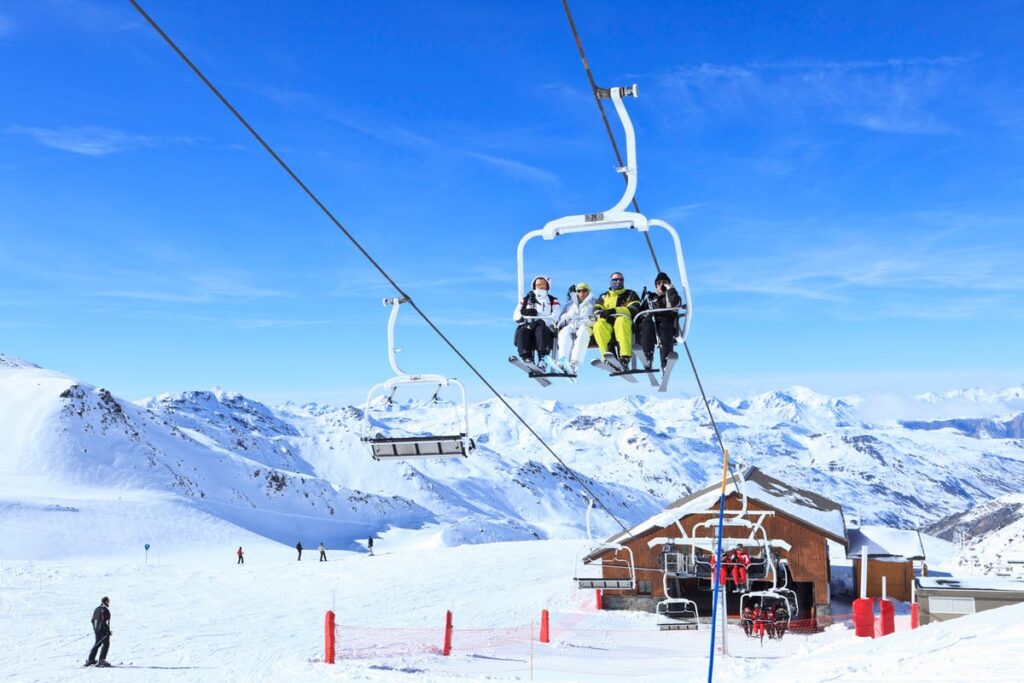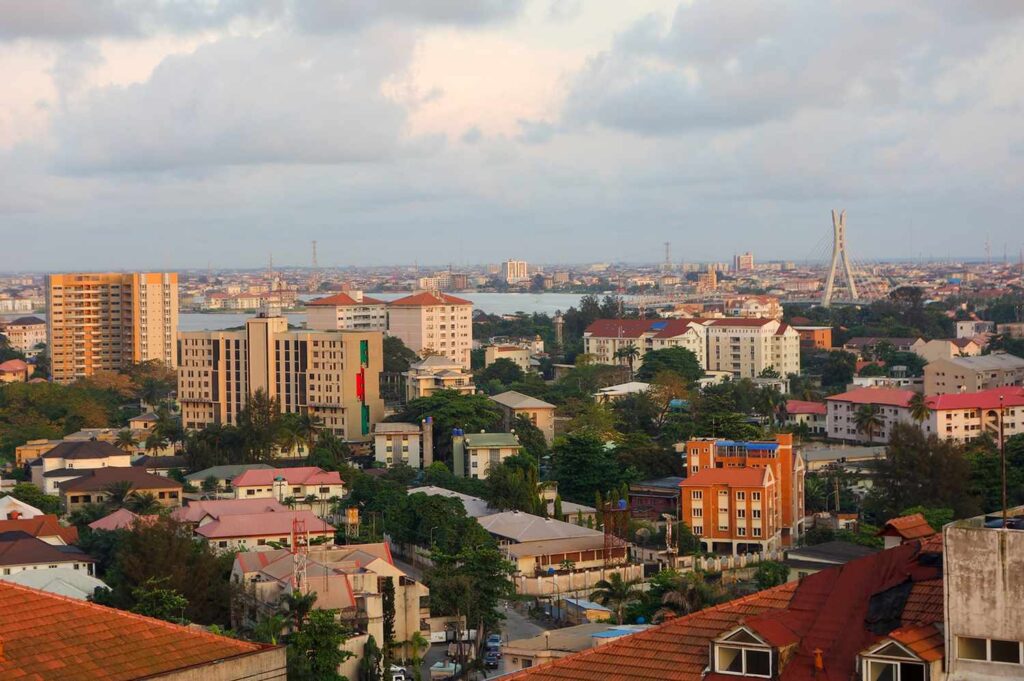
Your support helps us to tell the story
From reproductive rights to climate change to Big Tech, The Independent is on the ground when the story is developing. Whether it’s investigating the financials of Elon Musk’s pro-Trump PAC or producing our latest documentary, ‘The A Word’, which shines a light on the American women fighting for reproductive rights, we know how important it is to parse out the facts from the messaging.
At such a critical moment in US history, we need reporters on the ground. Your donation allows us to keep sending journalists to speak to both sides of the story.
The Independent is trusted by Americans across the entire political spectrum. And unlike many other quality news outlets, we choose not to lock Americans out of our reporting and analysis with paywalls. We believe quality journalism should be available to everyone, paid for by those who can afford it.
Your support makes all the difference.
If your festive calendar is already filling up and a week on the pistes this winter seems beyond reach, now’s the time to plan a ski trip to the snowsure resorts that promise powder well into spring.
Many skiers worry about the lack of snow over the Easter holidays, but their fears are often misplaced. By April, plenty of pistes have a solid, icy base underneath them, which allows at least a strip of snow on even lower runs back into the village.
Snowsure spots span the continents with Canada’s powder Whistler pistes and snowboarding favourite Niseko in Japan coated with flakes well into spring.
For the most wintry landscapes, here’s a selection of higher – or more northerly – resorts than Europe’s February half-term heavyweights. Most are open into May.
Read more: The best luxury ski resorts for a five-star skiing experience
Val Thorens and Orelle, France
As the world’s biggest ski area, the Trois Vallees is a popular choice. Meribel, a pretty village of stone houses, is at the centre of the area, with chichi Courchevel’s wide, immaculately pisted boulevards to the east. But for almost guaranteed snow off-piste – and cheaper accommodation – try lofty Val Thorens at the other end of the ski area. You can even reach it by Eurostar booking through Travelski. There are even cheaper deals to be had in Orelle, which in 2022 got two new gondolas that whisk you up in 20 minutes to Val Thorens’ highest point, the Cime de Caron, at 3,200m.
Read more: Off-piste in Val Thorens: Exploring the Three Valleys backcountry through ski touring
Ischgl, Austria
Despite its reputation as a party capital, Ischgl is a charming, upmarket village, with challenging skiing on a big network of high-altitude pistes. Most of its snowsure slopes are north-facing, so drop into the warm, south-facing Swiss side of the area for sunshine. Apres is a big thing here – and, to clarify, Austrian apres-ski is just that, partying directly after skiing so you can freshen up for dinner and still ski the next morning. The ‘Top of the Mountain Closing Concert’ closes the season on 3 May at an altitude of 2,300m. Austrian hotels are also known for their excellent spas, and the newly opened public Silvretta spa has a huge outdoor pool on the roof and an ice rink running the circumference of the upper floor.
Zermatt, Switzerland and Cervinia, Italy
Another high-altitude cross-border area is Zermatt-Cervinia. There’s more to see and do on the Swiss side, which has the best views of the Matterhorn, and is where cog railways climb incongruously between the pistes. Off-piste fans can try the avalanche-patrolled “itineraries” around the Rothorn and Schwarzsee sectors. And the Zermatt Unplugged music festival runs from 8 to 12 April. However, it’s far cheaper to stay on the Italian side… as long as you don’t miss the last lift back – the two resorts are a four-hour taxi ride apart! The opening of a high-tech 3S gondola between the two should help with that.
Paradiski, France
The resorts of Les Arcs and La Plagne cater well to skiers of all abilities – and most budgets – with La Plagne designating certain pistes CoolSki Zones, only open to beginners. If the snow is good, Peisey-Vallandry, between Les Arcs and La Plagne, offers the best access to both, as well as charming chalets – a nice alternative to the two resorts’ purpose-built apartment blocks. But in spring, Les Arcs benefits from the easiest access to glacier runs. Try Arc 1950 – expensive, but created to look like a traditional village – or Arc 1600, reachable by funicular railway from the Eurostar terminus at Bourg St-Maurice.
Obergurgl, Austria
Obergurgl is a popular choice for families, with its walking trails allowing older generations – and parents with babies – to join skiers on its wide, uncrowded, snowsure slopes. A cultural centre, Gurgl Carat, promises exhibitions and concerts, while a 10-minute gondola ride takes you to the pistes of Hochgurgl and the rebuilt motorcycle museum there. The resort of Solden, included in the ski pass, is 20 minutes by bus down the valley. The village is less quaint than Obergurgl, but its big network of slopes rise even higher – to the Tiefenbach and Rettenbach glaciers at 3,340m – and you can visit the Bond museum, 007 Elements, where scenes from Spectre were filmed.
Murren, Switzerland
Also popular with winter walkers – and Bond fans of a different vintage – is Murren, a charming, car-free, clifftop village. A new train service from Zurich airport has cut the transfer time by an hour, and here skiers and non-skiers can visit the revolving Piz Gloria restaurant – the setting for 1969’s On Her Majesty’s Secret Service – as well as lap up Murren’s sunny, high-altitude slopes. The rest of the Jungfrau region – Wengen and Grindelwald – is accessible by trains that also serve as ski lifts (with the advantage that they run all evening).
Niseko, Japan
Crystal became the first big tour operator to offer ski trips to Japan’s slopes, with all the cost and organisational benefits that brings. Crystal takes guests to Japan’s biggest resort, Niseko, which is a magnet for Asia’s many first-time snowboarders – several filming themselves with selfie sticks! More accomplished riders can circle the steep slopes around the crater of the volcanic Annupuri peak, before swooping down into any of the four sectors around the mountain with their powdery tree-lined runs – the season generally lasts into May due to an average 14 metres of snowfall.
Tignes, France
With an underground funicular railway that leads to the glacier, Tignes is well placed for spring skiing whatever the weather – and it’s important to remember that in these high-altitude resorts, it’s often strong winds, rather than lack of snow that limits the skiing. A must in Tignes is skiing up to the Aiguille Percee, the peak with the natural hole running straight through it. And, if conditions permit, you can ski down through the trees to Les Boisses. The Tignes lift pass gives you access to its more expensive neighbour, Val d’Isere, too, so you can pop over to Val to explore the off-piste but avalanche-secure Vallee Perdue – a gorge that’s popular with children who are confident skiers – or party at the much-vaunted Folie Douce, the apres-ski venue above La Daille.
Read more: How to have a ‘grown-up’ ski season in your 40s
The Arlberg valley, Austria
The Arlberg valley stretches all the way from St Anton, via Lech, to Warth on the German border, and Schrocken. While experts are drawn to St Anton’s perilous off-piste descents from the Valluga peak, for most of us it makes more sense to stay in the middle of this giant area. Lech is pricey, so you can try Stuben, a little village clustered around an onion-domed church, or Zurs. It’s not the highest of ski areas, and the season closes earlier than most others listed here – on 22 April – but generally abundant snowfall, particularly towards the Schrocken end, guarantees nicely varied skiing, even if the snow does get heavy in spring. The jazz-infused Tanzcafe concerts, held in the first fortnight of April, are not as wild as St Anton’s apres scene, but they exude a relaxed, lounge-style charm.
Chamonix, France, and Courmayeur, Italy
For a short break, try Chamonix on the flanks of the Alps’ highest mountain – Mont Blanc. It’s just over an hour from Geneva airport and mostly caters for advanced skiers. However, even adventurous intermediates can tackle the famous Vallee Blanche descent over the glacier with a guide. The catch? It begins with a vertigo-inducing hike down a ridge, where you stare down a near-3km vertical cliff face to the charming town below. Courmayeur (courmayeur-montblanc.com) – on the Italian side of Mont Blanc – is also covered by the Mont Blanc Unlimited ski pass, and from 28 March price of the three-day pass drops from €250 to €139.80. However, the ski areas aren’t linked; they’re a 45-minute bus ride apart, though with a guide you can ski from the top of Courmayeur down the Vallee Blanche, avoiding that stomach-churning first stage.
Read more: Tour du Mont Blanc: The complete travel guide to Europe’s popular long-distance walk
Whistler, Canada
The biggest ski resort in North America, Whistler is a regular late closer on a continent where many resorts shut early due to lack of demand. That’s thanks in part to its glaciers, but also the plentiful snow. The resort is most popular with experts wanting to do the big powder-bowl descents for which the resort is famous. Many also want to try heliskiing, but for a fraction of the price try backcountry cat skiing, where a caterpillar-tracked vehicle takes you back up the mountain. Not only does it give you a much-needed chance to rest between runs, but you won’t have the frustration if too much cloud and snow means the helicopters can’t fly. There’s plenty to do off the slopes in Whistler village too, from shops to cultural attractions, and you’ll want to include a visit to the city of Vancouver itself.
Les Deux Alpes, France
With one of Europe’s largest skiable glaciers, as well as a linked network of red and blue slopes, Les Deux Alpes is a natural spring choice. Experts will want to hike over the top to reach the legendary descents of La Grave – an off-piste-only resort. For the rest of us, without a series of villages and woodland trails to explore, it makes sense to look for other challenges. Many of the British tour operators – which offer excellent-value deals here, especially in their own-brand hotels – organise day trips to Alpe d’Huez and Serre Chevalier, which are covered by the lift pass. And some include guiding by instructors around the resort.
Are, Sweden
An alternative to going high in altitude in search of snow is to go high in latitude. Finland and Sweden have resorts open until May, but the problem is a lack of direct flights come spring. The exception is Are (skistar.com), which is two hours from Trondheim airport and genuinely caters to all levels of skier. Its highest run, at 1,270m, is nearly a kilometre above town, and beginners and nervous intermediates can pass under the fastest black runs through a series of tunnels to explore cosier trails zig-zagging through the trees. The town is more lively than a lot of its Nordic rivals, but food and drink are expensive in Scandinavia, so many families opt for self-catering apartments (which generally come with their own saunas). And Are has an extensive network of cross-country trails.
Geilo, Norway
The Nordic country with plenty of direct flights from the UK in April – and easy onward rail connections – is Norway. From Oslo airport, it’s a direct two- to four-hour train ride to resorts such as Kvitfell and Hemsedal. And the tram connection from Bergen airport allows you to visit Geilo and Myrkdalen relatively easily. Norway’s resorts are less challenging and more orientated to young families than most in the Alps. But for child-free weekenders, Voss has a great gondola, which rises directly from the railway station to a mass of nicely varied pistes, so you can ski until 2.30pm and be on the 7pm flight home.
Hintertux, Austria
Most of the resorts mentioned here only close in early May. But if you’re keen to extend your ski season beyond that, there was one Alpine resort that remained open to recreational skiers year-round even in the baking heat of summer 2022. The Hintertux glacier straddles the main Alpine ridge dividing the northern and southern Alps, and so benefits from snowstorms from both directions. Of course, out-of-season skiing is limited, unless the lower runs and off-piste itineraries back down to the village are still open. (Off-piste skiing on the glacier itself is strictly verboten because of the many crevasses.) But there are other attractions, such as tours of the Ice Palace, an amazing network of tunnels discovered in the glacier, with a boat ride included, and breakfast or lunch in a gondola. From that vantage point, even in midsummer, you can see snow all around you.
Looking for Europe’s snowiest resort? Here’s why you should head to Obertauern
Saas-Fee, Switzerland
Sandwiched between mountains of 4,000-plus metres, Saas-Fee’s height makes the resort’s 100km of runs relatively snowsure for beginners on gentle greens and piste professionals headed for the Mittelallalin summit. Most of the slopes sit between 2,500m and 3,500m, with tobogganers, winter walkers, cross-country skiers and snowshoers also well-served at the Swiss resort until late April. With a lack of sun in midwinter, Saas-Fee shines for ski holidays in spring.
Arapahoe Basin, USA
It’s a powder party during the Arapahoe Basin’s extended season in Colorado. The lifts typically spin for high-alpine adventure seekers from October to June at the resort home to some of North America’s most challenging terrain. Known as ‘The Legend’ A-Basin, the resort with a summit altitude of almost 4,000m has 1,428 accessible acres to ski and an average annual snowfall of almost 9m.
Kaprun, Austria
For a supersized ski season, Kaprun’s high-altitude Kitzsteinhorn Glacier can host winter sports from October to July. Primed for both early and late season skiing up to 3,029m, Kaprun’s a snowsure pick for cruisy blues and steep blacks. The glacier’s challenging runs, snowpark, and half-pipe are known to challenge advanced skiers – including on the 63 per cent gradient Black Mamba run – and the laidback resort isn’t far from the acclaimed apres of St Anton and Zell am See for more boozy afternoons in your ski boots.
Seiser Alm, Italy
Powder usually stays deep in the Dolomites until early April, and Italy’s Seiser Alm, the largest ski area in the Dolomiti Superski, has 181km of slopes and 40 snowparks to entertain snow seekers well into Easter. Brace for blues, reds and blacks at altitudes up to 2,450m in the alpine meadow – well-groomed and well-connected to the rest of the Dolomiti Superski ski carousel. Moonlight cross-country skiing, ice skating on the frozen pond of Fiè, snowshoeing and tobogganing six dedicated runs are all also on the itinerary.
Verbier, Switzerland
Switzerland has no shortage of snowsure slopes, and Verbier is no exception. Here, there’s slope action between November and late April. With snowmaking installations on 63 per cent of runs and over 13m of snowfall annually across the 1,500 to 3,330m high slopes, some of the best spring skiing can be found on fresh powder days in April. The glitzy Swiss resort has 410km of slopes, famed off-piste tracks and high-end apres-ski known for attracting A-listers.
Read more: Bulgaria’s lesser-known ski resorts for cheap winter holidays


